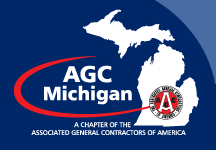In a sign of the times, the Michigan Homeowner Construction Lien Recovery Fund is broke, and there is currently no way to replenish its coffers.
The Michigan Homeowner Construction Lien Recovery Fund (Fund) was created under Part 2 of the Michigan Construction Lien Act (MCL 570.1101, et seq) to provide protection when the homeowner, has in good faith, paid their licensed contractor for materials and labor and the contractor failed to compensate materialmen, subcontractors, and/or laborers.
The funding problem for the Fund stems from PA 497 of 2006, an amendment to the Michigan Construction Lien Act, which repealed Section 201(2) of the Act effective January 3, 2007. This amendment, reportedly the product of a legislative compromise, eliminated the ability of the Fund to make a $50 special assessment when the Fund fell below $1 million. Instead, the Fund can only assess members a $10 annual renewal fee.
Beginning in 2006 and continuing through July, 2009, the Fund experienced an unprecedented increase in claims. This increase closely mirrored the collapse of the housing market. The Fund is currently involved in over 250 pending lawsuits involving more than 350 claims against it that total more than $18 million. In 2009, Judgments against the Fund have averaged $123,800 per month. By mid-October, there was only $524,000 remaining in Fund coffers.
On October 21, 2009, the Fund sought to consolidate all 250 of the pending lawsuits into one proceeding in Macomb County and proposed a pro rata distribution of the remaining money among all the lien claimants. The result would be pennies on the dollar. The Fund’s (interpleader) motion was heard by Judge James Biernat, Sr. on November 2, 2009, but denied several weeks later in a written opinion.
The funding problem for the Fund stems from PA 497 of 2006, an amendment to the Michigan Construction Lien Act, which repealed Section 201(2) of the Act effective January 3, 2007. This amendment, reportedly the product of a legislative compromise, eliminated the ability of the Fund to make a $50 special assessment when the Fund fell below $1 million. Instead, the Fund can only assess members a $10 annual renewal fee.
Beginning in 2006 and continuing through July, 2009, the Fund experienced an unprecedented increase in claims. This increase closely mirrored the collapse of the housing market. The Fund is currently involved in over 250 pending lawsuits involving more than 350 claims against it that total more than $18 million. In 2009, Judgments against the Fund have averaged $123,800 per month. By mid-October, there was only $524,000 remaining in Fund coffers.
On October 21, 2009, the Fund sought to consolidate all 250 of the pending lawsuits into one proceeding in Macomb County and proposed a pro rata distribution of the remaining money among all the lien claimants. The result would be pennies on the dollar. The Fund’s (interpleader) motion was heard by Judge James Biernat, Sr. on November 2, 2009, but denied several weeks later in a written opinion.
As things stand now, and absent legislative intervention, the Fund has advised that it will run dry within a few months. This will leave unpaid subcontractors and suppliers to fight things out with Homeowners, who will find themselves stuck in the middle of dispute with their builder and at significant risk of paying twice for improvements to their home.
For more information, contact Peter Cavanaugh or Gary Quesada, or visit their website -- http://www.michiganconstructionlaw.com/
Update: Michigan Lawyer's Weekly recently ran a piece about this issue in its February 1, 2010 edition. The cite, for any lawyers reading this, is 24 Mich. L.W. 265.






